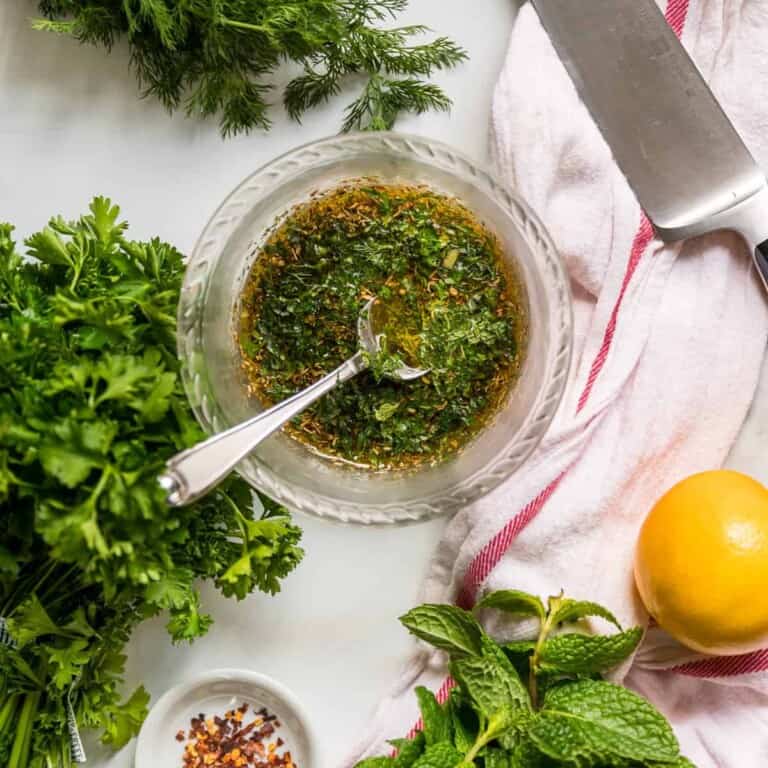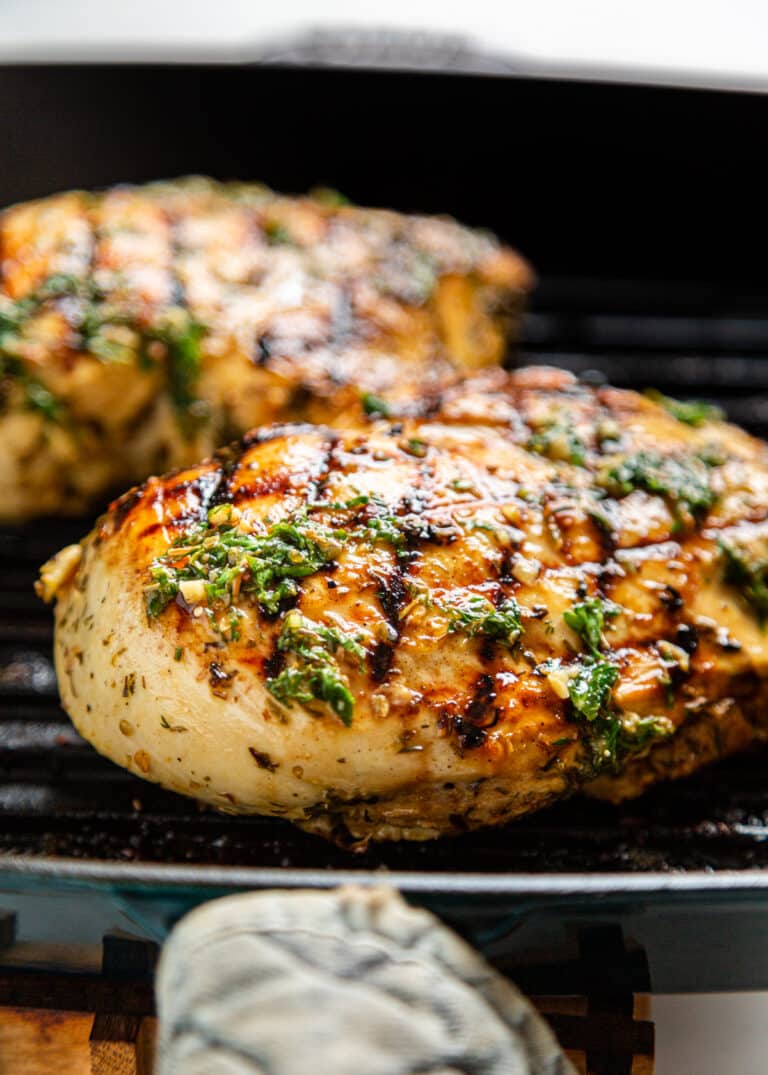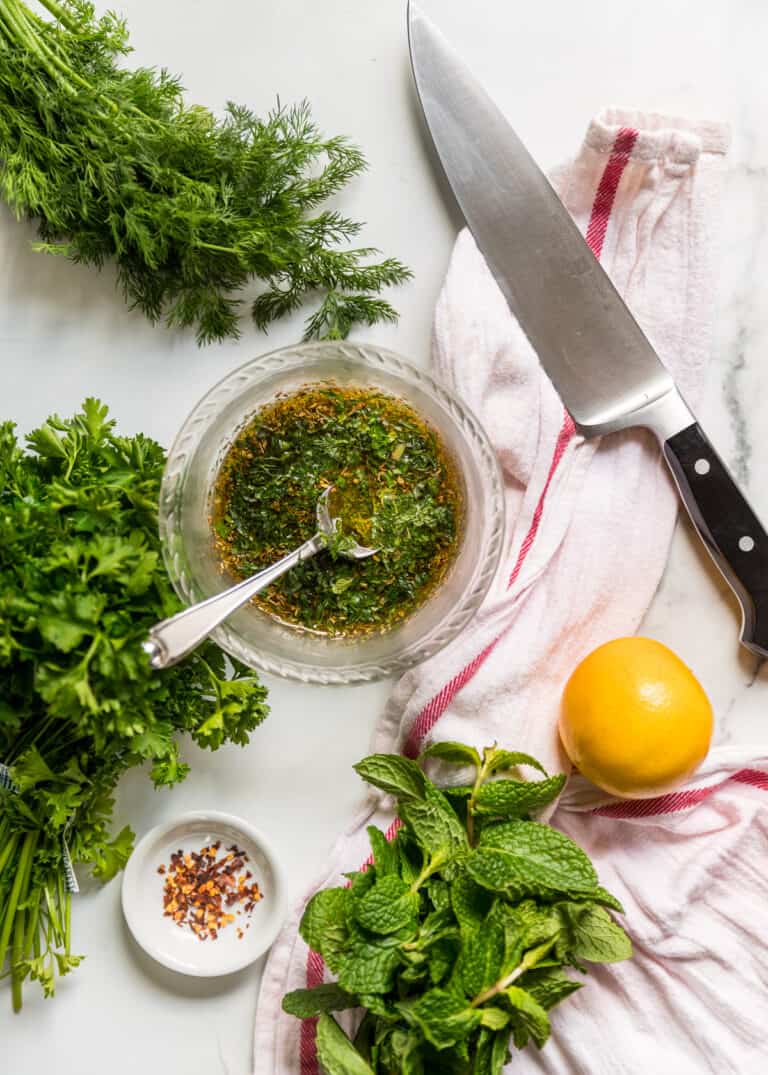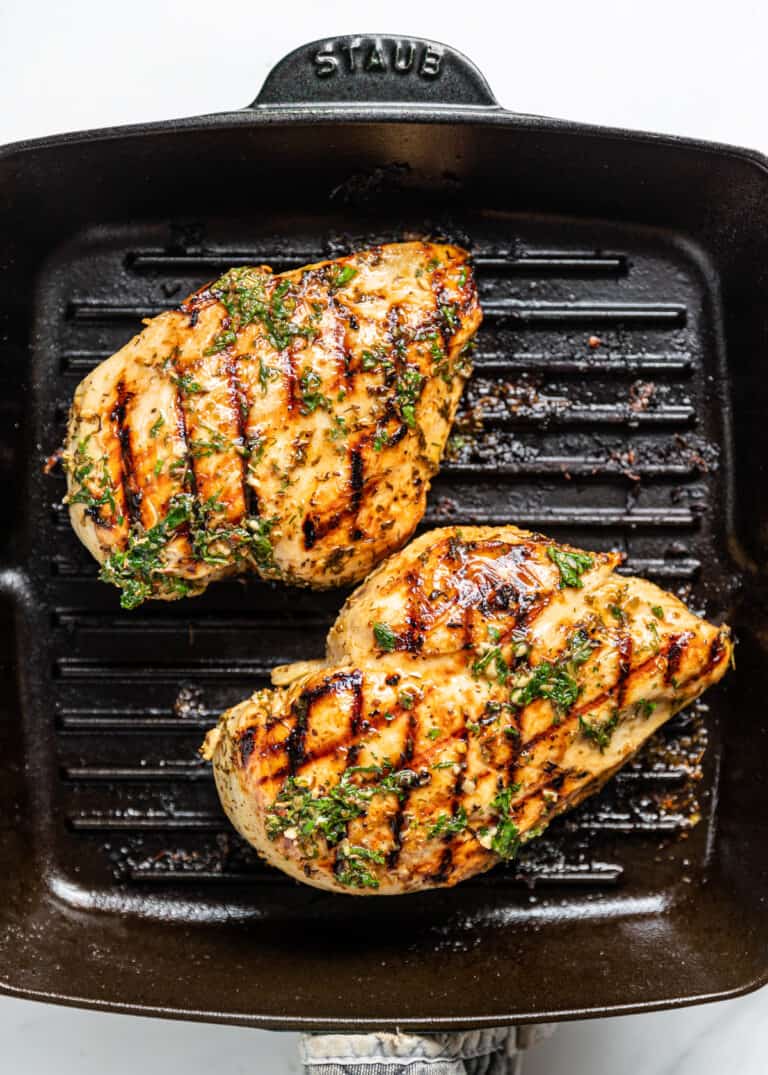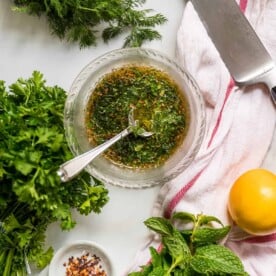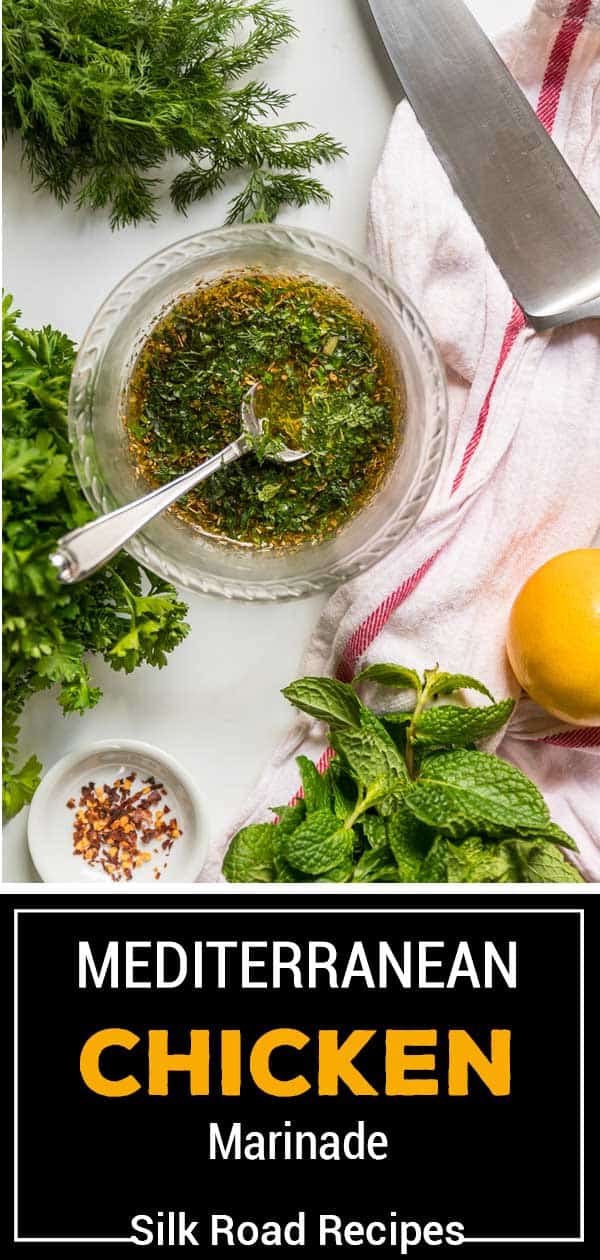published May 14, 2021 The purpose of marinating chicken is more about providing flavor than it is for tenderizing. Meats like beef and pork need a marinade to tenderize. However, a well made chicken marinade will add some flavor to the dish you’re making. Mediterranean cuisine is known for its bright, fresh flavors, and my Mediterranean chicken marinade has plenty of that!
Ingredients in Mediterranean Chicken Marinade
Generally speaking, there are a few components required for all marinades. Each ingredient plays a part in creating poultry that’s juicy and delicious.
Fat – Oil creates a non-stick surface which is great for grilling, but it also penetrates the chicken to keep it juicyAcid – An acidic ingredient tenderizes the meat. For this recipe, we use lemon juiceSalt – Salt intensifies the flavors of the marinade. Just be sure not to use too much, as it can quickly dry out the meatSeasonings – To create a Greek flavor, we use oregano, dill, lemon, and a few other basic spices. The flavor is fresh and bold
How to Use Leftover Marinade
With just a couple of extra very important steps, any marinade can be used as a sauce for dipping! Not only that, but Mediterranean chicken marinade makes an amazing vinaigrette for a Greek feta salad! This being said, food safety is very important, because of something known as cross contamination. This is when harmful bacteria or contaminants are transferred to non-contaminated surfaces and/or foods. Before using leftover marinade, it must first be boiled for at least 2 minutes. Not just heated up or brought to a simmer, but a full rolling boil, so that the temperature reaches 212°F or 100°C. To use leftover Mediterranean chicken marinade as a salad dressing: Boil the marinade, then allow the mixture to cool at room temperature for a few minutes before transferring it to the fridge to completely chill.
How to Safely Grill Chicken
When precautions aren’t taken, grilling raw meat and poultry presents risks of food poisoning and/or illness from bacteria present in the raw meat.For that reason, I recommend following the grilling guidelines outlined by the U.S. Food & Drug Administration (FDA) and USDA Food Safety and Inspection Service (FSIS).
